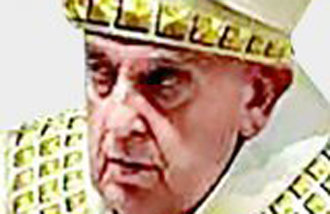Questions Surround Korea Railroads Oil Field Investment Project
Questions Surround Korea Railroads Oil Field Investment Project
Posted April. 05, 2005 23:35,
While the employees of Korea Railroad who are related to the failed investment project in Russias Sakhalin oil field are busy blaming others for responsibility, the inspection of the Board of Audit and Inspection has turned out to be far from faultless.
Hu Moon-suk (71, Doctor of geology), president of Korea Crude Oil (KCO), is confirmed to have left for Indonesia on April 4. His departure is expected to disrupt the inspection process of the board.
Loopholes in Inspection of the Board-
On April 5, the Board of Audit and Inspection said that it received tips on Korea Railroads investment plan in the Sakhalin oil field for the first time last December and deliberated whether it would inspect the case for about two months. Then it launched its inspection in earnest a month ago, summoning the employees who had a hand in the investment project.
However, at the end of March when the case came to light, the board belatedly requested a foreign travel ban on only one person, Jeon Dae-wol (43), an executive of Highend, a real estate investment firm. Jeon is the biggest investor (42%) in KCO, a joint corporation of Korea Railroad and private investors.
On the other hand, the board did not call for a foreign travel ban on directly related investors Huh and Gwon Gwang-jin (52), an executive of Kook Energy who holds a stake in KCO along with Jeon.
In particular, regarding Huh, who has personal connections with politicians such as ruling Uri party representative Lee Gwang-jae and Lee Ki-myung(69), the leader of Lees supporters group, many are raising questions over the willingness of the board and the thoroughness of its investigation.
We had contact with Jeon on the phone, but we called for a foreign travel ban on him just in case, responded one member of the board, but at that time, Jeon was the only one who was directly related to the case.
Questionable Changes in Stakes-
On August 17, 2004, when Korea Railroad and private investors founded the KCO to invest in Russian oil fields, Jeon, the Korea Railroad and Transportation Foundation, Gwon and Huh had 42 percent, 35 percent, 18 percent and five percent of the stake of the joint corporation, respectively.
However, on September 17, just one month after the foundation, Korea Railroad held 95 percent and Huh held five percent.
On the changes in stakes, Gwon insisted that Jeon and some of Korea Railroad excluded him from the oil field investment project
But Jeon refuted this, saying, While Woori bank reviewed the applications for the loan, it found out that Gwon was a credit delinquent and Highend, which I owned, was bankrupt, and it demanded we be excluded.
Why Korea Corporation Broke the Deal-
It is unclear why Korea Railroad rushed to wash its hands from the investment project in November, which the corporation was so earnest in striking the deal.
Gwon said Korea Railroad abruptly withdrew from the project when creditors to Jeon sent letters on the case to the presidential office, the Blue House.
In response, a Korea Railroad spokesperson said, During the actual feasibility study, we concluded that the project would not generate profits.
Headline News
- Korean president faces debate limitations unlike U.S. counterpart
- KEPCO's first quarter profits failed to meet market expectations
- Teenagers are left out of discussions about national pension
- 2 consultative bodies submit minutes regarding increasing number of medical students
- Woo Sang-hyuk's rivalry and friendship transcend borders







